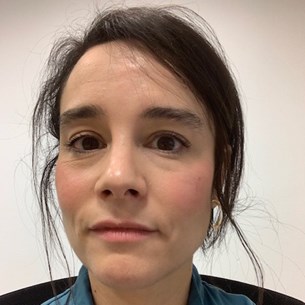Meeting
2022 ASCO Annual Meeting

Clínica Universidad de Navarra, Madrid, Spain
Paula Rodríguez-Otero , Anita D'Souza , Donna Ellen Reece , Niels W.C.J. van de Donk , Ajai Chari , Amrita Y. Krishnan , Thomas G. Martin , Maria-Victoria Mateos , Daniel Morillo , David Duane Hurd , Laura Rosiñol , Anna Sureda Balari , Ralph Wäsch , Deeksha Vishwamitra , Shun Xin Wang Lin , Thomas Prior , Lien Vandenberk , Marie-Anne Damiette Smit , Albert Oriol Rocafiguera , Bhagirathbhai R. Dholaria
Background: Teclistamab (tec; JNJ-64007957) is a BCMA × CD3 T-cell redirecting bispecific antibody under investigation in patients (pts) with RRMM. Daratumumab (dara) is a CD38 mAb with direct on-tumor and immunomodulatory actions. Initial clinical data from the phase 1b multicohort TRIMM-2 study support the combination of tec + dara for the treatment of RRMM, with tolerable safety, no overlapping toxicities, and promising efficacy. We present updated results with additional pts and longer follow-up. Methods: Eligible MM pts aged ≥18 y had received ≥3 prior lines of therapy (LOT; including a proteosome inhibitor [PI] and immunomodulatory drug [IMiD]) or were double-refractory to a PI and IMiD. Pts treated with anti-CD38 therapy ≤90 d prior were excluded. Pts received dara SC 1800 mg per approved schedule and tec SC 1.5–3 mg/kg QW or Q2W. Primary objectives were to identify the recommended phase 2 dose of tec for combination therapy and evaluate safety of the combination. Responses were assessed by IMWG criteria. AEs were graded per CTCAE v5.0; cytokine release syndrome (CRS) and immune effector cell–associated neurotoxicity syndrome (ICANS) were graded per ASTCT guidelines. Results: At data cutoff (Jan 13, 2022; safety population: N=46), median follow-up was 7.2 mo (range 0.1–16.6; median age 67 y [range 50–79]; 52% female). Pts received a median of 6 prior LOT (range 2–17; 74% triple-class exposed; 63% penta-drug exposed; 15% anti-BCMA exposed). 91% of pts had ≥1 AE (grade 3/4 78%), most commonly CRS (61%; all grade 1/2; median time to onset 2 d; median duration 2 d), neutropenia (54%; grade 3/4 50%), anemia (46%; grade 3/4 28%), thrombocytopenia (33%; grade 3/4 28%), and diarrhea (33%; grade 3/4 2%). Infections occurred in 29 pts (63%; grade 3/4 28%). One pt had grade 1 ICANS that fully resolved. Among 37 response-evaluable pts, ORR was 78% (29/37); 27 pts (73%) had very good partial response (VGPR) or better (Table). Median time to first response across dosing cohorts was 1.0 mo (range 0.9–2.8); median duration of response was not reached. Upregulation of CD38+/CD8+ T cells and proinflammatory cytokines was observed with tec + dara, supporting potential synergy of the combination in pts with prior anti-CD38 exposure. Updated results will be presented. Conclusions: Tec + dara provides a novel immunotherapy approach for the treatment of RRMM that may yield improved clinical efficacy in heavily pretreated pts. Clinical trial information: NCT04108195.
| Dara 1800 mg + Tec 1.5 mg/kg QW (n=20)b | Dara 1800 mg + Tec 3 mg/kg QW (n=4) | Dara 1800 mg + Tec 3 mg/kg Q2W (n=13) | |
|---|---|---|---|
| Overall response, n | 15 | 4 | 10 |
| VGPR or better, n | 14 | 4 | 9 |
| Complete response or better, n | 6 | 2 | 1 |
aPts who received ≥1 study treatment and had ≥1 postbaseline response evaluation. b8 pts switched to tec 3 mg/kg Q2W (3 at cycle [C] 4, 3 at C5, 1 at C7, and 1 at C9).
Disclaimer
This material on this page is ©2024 American Society of Clinical Oncology, all rights reserved. Licensing available upon request. For more information, please contact licensing@asco.org
2022 ASCO Annual Meeting
Poster Session
Hematologic Malignancies—Plasma Cell Dyscrasia
Hematologic Malignancies
Multiple Myeloma
NCT04108195
J Clin Oncol 40, 2022 (suppl 16; abstr 8032)
10.1200/JCO.2022.40.16_suppl.8032
8032
456
Abstract Disclosures
2024 ASCO Annual Meeting
First Author: Cesar Rodriguez Valdes
2024 ASCO Annual Meeting
First Author: Robert M. Rifkin
2022 ASCO Annual Meeting
First Author: Ajay K. Nooka
2023 ASCO Annual Meeting
First Author: Carolina D. Schinke